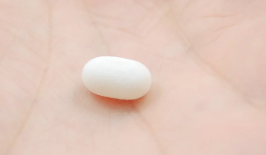Atorvastatin:
Introduction to Atorvastatin
Atorvastatin, sold under the brand name Lipitor among others, is a medication primarily used to lower cholesterol levels and reduce the risk of heart disease. It belongs to a class of drugs known as statins, which work by inhibiting the enzyme HMG-CoA reductase, an essential enzyme involved in the production of cholesterol in the liver.
Uses of Atorvastatin
Lowering Cholesterol Levels
One of the primary uses of atorvastatin is to lower elevated levels of cholesterol in the blood. High cholesterol levels, particularly LDL cholesterol (often referred to as "bad" cholesterol), can increase the risk of developing atherosclerosis, a condition characterized by the buildup of plaque in the arteries. By reducing LDL cholesterol levels, atorvastatin helps prevent the progression of atherosclerosis and reduces the risk of heart attack and stroke.
Preventing Cardiovascular Events
In addition to lowering cholesterol levels, atorvastatin has been shown to reduce the risk of cardiovascular events such as heart attack, stroke, and angina (chest pain) in individuals with existing heart disease or those at high risk of developing it. It achieves this by stabilizing existing plaque in the arteries and preventing the formation of new plaque.
Treatment of Hyperlipidemia
Atorvastatin is also used in the treatment of hyperlipidemia, a condition characterized by abnormally high levels of lipids (fats) in the blood. By lowering LDL cholesterol levels and triglycerides while increasing HDL cholesterol (often referred to as "good" cholesterol) levels, atorvastatin helps restore lipid levels to within the normal range, reducing the risk of cardiovascular disease.
Benefits of Atorvastatin
Effective Cholesterol Reduction
Atorvastatin is highly effective at lowering LDL cholesterol levels, often achieving reductions of 20% to 60% depending on the dose and individual response. This reduction in cholesterol levels translates to a significant reduction in the risk of cardiovascular events such as heart attack and stroke.
Cardiovascular Risk Reduction
Numerous clinical trials have demonstrated the cardiovascular benefits of atorvastatin in both primary and secondary prevention settings. By reducing LDL cholesterol levels and stabilizing plaque in the arteries, atorvastatin helps lower the risk of cardiovascular events and improve overall cardiovascular health.
Well-Tolerated and Generally Safe
Atorvastatin is well-tolerated by most individuals and is generally considered safe when taken as directed. Common side effects may include muscle aches, gastrointestinal upset, and headache, but these are usually mild and temporary. Serious side effects such as liver problems and muscle damage are rare but can occur, particularly at higher doses or in combination with certain other medications.
Brands Offering Atorvastatin
1. Lipitor
- Lipitor is the original brand name for atorvastatin, manufactured by Pfizer. It was approved by the FDA in 1996 and quickly became one of the most widely prescribed medications for lowering cholesterol levels and reducing the risk of cardiovascular disease.
2. Atorvastatin (Generic)
- In addition to Lipitor, atorvastatin is available as a generic medication, sold under various brand names by different pharmaceutical companies. Generic atorvastatin offers a more affordable alternative to the brand-name version while providing the same therapeutic benefits.
3. Sortis
- Sortis is another brand of atorvastatin manufactured by Pfizer and marketed in certain regions outside the United States. Like Lipitor, Sortis is available in various strengths and formulations to meet the diverse needs of patients.
4. Torvast
- Torvast is a brand of atorvastatin produced by the pharmaceutical company Dr. Reddy's Laboratories. It is available in several countries and provides an effective option for lowering cholesterol levels and reducing cardiovascular risk.
5. Atorlip
- Atorlip is a brand of atorvastatin manufactured by Cipla, a leading pharmaceutical company based in India. Atorlip is available in various strengths and forms, including tablets and oral solutions, providing flexibility for patients with different preferences and needs.
Dosage and Administration
Atorvastatin is typically taken orally in the form of tablets, with or without food, as directed by a healthcare provider. The dosage may vary depending on factors such as the patient's age, medical condition, and response to treatment. It's essential to follow the prescribed dosage instructions carefully and not to exceed the recommended dose without consulting a healthcare professional.
Precautions and Interactions
Before taking atorvastatin, it's crucial to inform your healthcare provider about any medical conditions you have, especially liver disease or kidney disease, as well as any medications you are taking, including prescription drugs, over-the-counter medications, and herbal supplements. Atorvastatin can interact with certain medications, including some antibiotics, antifungal medications, and drugs used to treat HIV/AIDS, so it's essential to discuss potential interactions with your healthcare provider.
Storage and Handling
Atorvastatin should be stored at room temperature away from moisture and heat, and out of reach of children. It's essential to check the expiration date on the medication label and to dispose of any expired or unused medication properly.
Side Effects of Atorvastatin
While atorvastatin is generally well-tolerated, like all medications, it can cause side effects in some individuals. Common side effects may include:
- Muscle pain or weakness
- Headache
- Nausea or vomiting
- Diarrhea
- Abdominal pain
- Elevated liver enzymes
Less common but more serious side effects may include:
- Liver problems, including hepatitis and jaundice
- Rhabdomyolysis, a rare but serious condition involving muscle breakdown
- Allergic reactions, including rash, itching, and swelling of the face, lips, or throat
If you experience any severe or persistent side effects while taking atorvastatin, it's essential to contact your healthcare provider immediately.
Conclusion
Atorvastatin is a widely prescribed medication used to lower cholesterol levels and reduce the risk of cardiovascular disease. By inhibiting cholesterol production in the liver, atorvastatin helps lower LDL cholesterol levels and prevent the buildup of plaque in the arteries, reducing the risk of heart attack, stroke, and other cardiovascular events. While generally well-tolerated, atorvastatin can cause side effects in some individuals, and it's essential to discuss any concerns with your healthcare provider.



